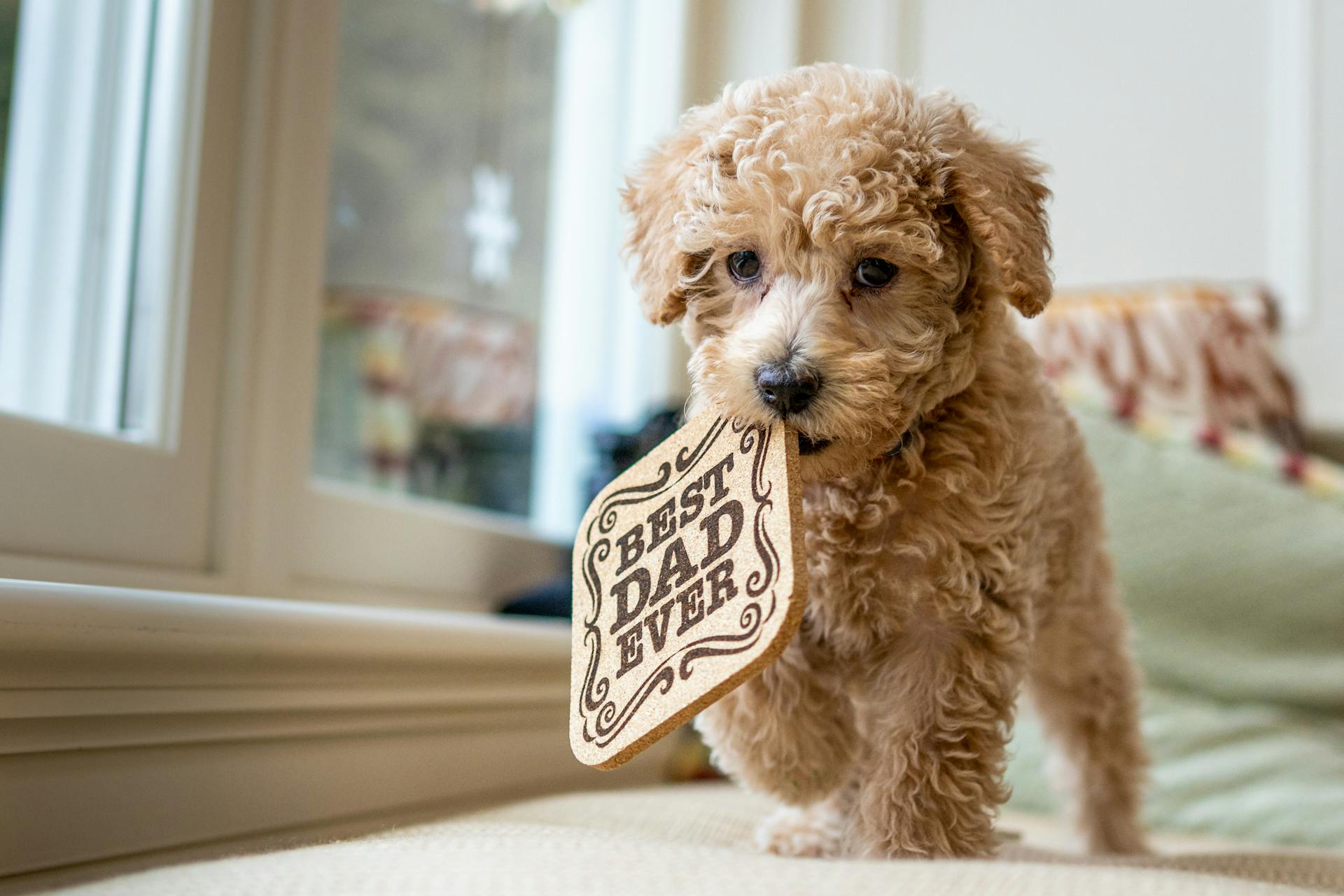
Finding a reputable Malamute breeder can be a daunting task, especially if you're new to the world of dog ownership. Look for breeders who are registered with a national kennel club, such as the American Kennel Club (AKC).
Check if the breeder has a good reputation online, with positive reviews and ratings from previous customers. A reputable breeder will prioritize the health and well-being of their dogs and will be transparent about the health clearances of their breeding stock.
Research the breeder's experience with the Malamute breed, including their knowledge of the breed's specific needs and characteristics. A breeder with extensive experience will be better equipped to provide guidance and support throughout the ownership process.
Consider visiting the breeder in person to meet the dogs and see the facilities firsthand. This will give you a sense of the breeder's commitment to the welfare of their dogs and their breeding practices.
Here's an interesting read: Breeders of Hypoallergenic Dogs
Physical Characteristics
The Alaskan Malamute breed is known for its distinctive physical characteristics. They have a wolf-like appearance and a signature face mask, which is a key identifier of the breed.
One of the most recognizable features of the Alaskan Malamute is its triangular ears, which are medium-sized and point forward. These ears are a great indicator of the breed's heritage as a sled dog.
The eyes of an Alaskan Malamute are brown and almond-shaped, giving them a curious and friendly expression. This expression is a result of their friendly nature and intelligence.
A Malamute's nose is typically black, except for red-and-white dogs, which have brown noses. This is a physical characteristic that can be used to identify the breed.
The Alaskan Malamute has a double coat, with a coarse and thick top coat and an oily and wooly undercoat. The fur is shorter on the sides and longer on the back and shoulders, and legs.
Malamutes can have a variety of coat colors, including white, gray, silver, black, sable, seal, blue, agouti, and red. The most common colors are a combination of white with one or more of these colors.
Here are the physical characteristics of an Alaskan Malamute at a glance:
- Ears: Medium-sized, triangular, and point forward
- Eyes: Brown, almond-shaped, and curious
- Nose: Black (except for red-and-white dogs, which have brown noses)
- Coat: Double-coated, with a coarse and thick top coat and an oily and wooly undercoat
- Coat Color: Variety of colors, including white, gray, silver, black, sable, seal, blue, agouti, and red
- Tail: Furry, plumed, and curls around the back when not working
Temperament and Care
Alaskan Malamutes are outgoing, affectionate, and devoted companions that thrive on human attention.
They love people and are great with children, but they can be strong-willed and may not respond well to other dogs if not properly socialized and trained. Early socialization is key to helping them get along with other pets.
These athletic dogs are always up for outdoor playtime, especially if you give them a job, and they're capable of finding new ways to dig under the fence or chew up the furniture unless you keep them challenged.
Daily exercise, a lot of grooming, and a job to do are must-haves for these high-maintenance dogs. They need daily brushing during shedding seasons, and training is a must with these strong-willed dogs.
A unique perspective: Returned Dogs
One Month Free Pet Insurance
If you're considering bringing home a new Alaskan Malamute puppy, you're likely thinking about the costs involved. One of the expenses you'll want to budget for is pet insurance.

Some reputable breeders offer a one-month free pet insurance policy, which can be a huge help.
You can expect to pay between $49.74 and $75.82 per month for pet insurance for an Alaskan Malamute puppy, depending on the breeder and the specific policy.
Many breeders show their dogs, which can be a great way to get a sense of the puppy's temperament and personality.
Here are some breeders who offer one-month free pet insurance and show their dogs:
Traits
Alaskan Malamutes are known for their distinctive physical traits, which include a wolf-like appearance and a signature face mask (except when the dog is entirely white).
Their thick double coat is designed to withstand the harsh Arctic climate, but it requires regular grooming to prevent matting and tangling.
Their athletic build and muscular physique make them well-suited for their original purpose as sled dogs.
Alaskan Malamutes are a medium to large breed, with males weighing between 70 and 95 pounds.
Temperament
Alaskan Malamutes are outgoing and affectionate companions that thrive on human attention.
They love people and are great with children, but they do require a lot of demanding exercise and stimulating activities to keep them happy and healthy.
As pack dogs, Malamutes typically do well with other dogs in the home, but they might not immediately get along with strange dogs. Early socialization can help with this.
Alaskan Malamutes have strong predatory instincts and may consider smaller animals as prey, so it's essential to establish other pets as part of the family.
Despite their size and imposing stature, Alaskan Malamutes are often too friendly to be effective guard dogs.
They're not barkers, but they are chatty – yelps, howls, and "woo woos" are all part of their repertoire, so expect them to join in on the conversation.
Malamutes are great with kids and babies, but they'll need to be supervised around small children due to their size and strong bite force.
A fresh viewpoint: Are Alaskan Malamutes Good Family Dogs
They're big dogs, and they might accidentally knock a child over, so it's crucial to keep a close eye on them.
Alaskan Malamutes are strong-willed and can be challenging to train if not done properly from an early age.
They have a high prey drive and may not respond well to other dogs if not properly socialized and trained, so off-leash adventures might not be the best idea.
Care
To care for an Alaskan Malamute, daily exercise is a must, including both mental and physical stimulation. This breed needs to stay active to prevent boredom and destructive behavior.
Their fluffy coats require a lot of grooming, especially during shedding seasons, when daily brushing is essential.
These dogs are strong-willed and need training, which should start early to establish good habits and prevent unwanted behaviors.
Nutrition
Alaskan Malamutes require a high-quality dog food that is age-appropriate, whether it's commercially manufactured or homemade with a veterinarian's supervision and approval.
Look for foods designed for large, high-energy breeds to ensure your Malamute gets the nutrients they need.
These dogs aren't prone to weight issues, but monitoring their food intake is still crucial to prevent obesity.
Giving too many treats in addition to regular meals can contribute to excess weight gain, so be mindful of your Malamute's snacking habits.
If your pup engages in endurance activities like sledding or skijoring, they may require extra calories to maintain their energy levels.
You might like: How Much Does an Alaskan Malamute Weight
Grooming
Grooming is a must for Alaskan Malamutes, requiring daily attention to their thick, coarse coat. A metal comb and pin brush are the ideal tools for the job.
Their waterproof fur can become matted, which can impact skin health, so regular grooming is essential. You'll need to bathe them with conditioner to keep their coat from becoming too dry.
Alaskan Malamutes blow their coats twice per year, and during these times, you'll need to groom more frequently to manage their undercoat. Daily brushing won't be enough to keep their coat healthy and free of mats.
Use a firm bristle brush, but avoid using a Furminator, as these de-shedding tools can cut their top coat hairs and cause them to grow back bent or discolored. Brushing once or twice a week during non-shedding seasons is a must to keep their coat healthy.
Their shedding abilities are no joke – it happens twice a year, and even daily brushing won't help as much as taking a high-powered pet-grooming dryer and blowing all that hair away once or twice a week as needed.
Malamutes aren't overly dirty dogs, so they won't need a bath very often. Aim for a bath every two months or so, and be sure to dry them thoroughly after a bath or a swim to prevent hot spots.
Brush their teeth at least a few times a week to keep their teeth healthy. You can brush them with your finger or a brush made for dogs, using dog-appropriate toothpaste.
Their nails need to be trimmed about every two months. If you can hear their nails click on the floor, it's time to cut them.
Frequently Asked Questions
How much does a Malamute puppy cost?
An Alaskan Malamute puppy typically costs between $1500 and $3000. Researching reputable breeders who prioritize their dogs' health is crucial to finding a fair price.
Is a Malamute calmer than a husky?
Yes, Alaskan Malamutes are generally calmer than Huskies, requiring less exercise and energy. However, they still need regular activity and mental stimulation to prevent boredom and destructive behavior.
What is the life expectancy of a Malamute dog?
Alaskan Malamutes typically live 12-15 years, a relatively long lifespan for a large breed. With proper care, some Malamutes may live longer, while others may have shorter lives
Featured Images: pexels.com


